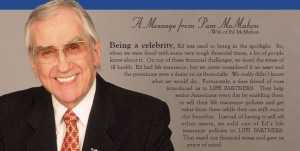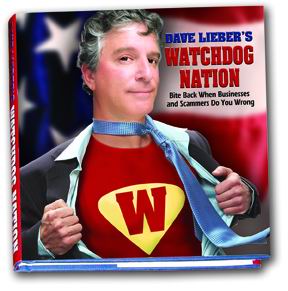Update: On Jan. 3, 2012, the Securities and Exchange filed suit against Life Partners accusing it and top three executives of defrauding shareholders by overvaluing the life insurance policies it buys from its customers, AP reported.
The SEC also accused Life Partners president Brian Pardo of insider trading. Pardo and the company quickly denied the charges.
Original story follows:
Commission Sarah Palin blasted “corporate crony capitalism” in an Iowa September 2011 speech to supporters. Many interpreted this as an attack on Gov. Rick Perry’s pay-to-play political machine.
Maybe this is an example of the type of thing Palin is talking about:
As first reported in the Wall Street Journal and then Dave Lieber’s Watchdog column in the Fort Worth Star-Telegram, when Texas Gov. Rick Perry and his family flew to South Carolina in August 2011 to announce his presidential run, he rode on a private jet owned by a contributor facing major troubles from federal and state regulators.
Brian Pardo, chief executive of Life Partners Holdings of Waco, gave $50,000 in 2010 to Texans for Rick Perry, records show. He’s a pioneer in the life-settlement investment industry, where investors buy death bonds. They pay for portions of strangers’ life insurance policies, pay the premiums and collect after a person dies. If the people exceed life-expectancy estimates, the investments go bad.
At the federal level, the Securities and Exchange Commission notified Life Partners this year that it intends to file an enforcement action related to accounting and disclosure practices.
At the state level, the Texas State Securities Board, part of the executive branch, has investigated Life Partners for more than a year. Recently, the board — working with the Texas attorney general’s office — filed a court petition seeking to force the company to honor its state-issued subpoenas for company records. In court papers, the board says the company engaged in fraudulent business practices.
Life Partners refuses to give information to state securities regulators. Company lawyers say the financial products are not securities and shouldn’t be regulated as such.
No federal or state charges have been brought against the company, which has denied wrongdoing. But Life Partners also faces a slew of lawsuits from shareholders and disgruntled customers.
The governor’s rides in Pardo’s airplane — one to Iowa in addition to the South Carolina trip — were first reported on the front page of The Wall Street Journal.
– – – – – – – – – – – – – – – – – – – – – – – –
More Watchdog Nation News:
Watchdog Nation Partners with Mike Holmes
America meets Watchdog Nation/Listen to Fun Radio Interview
Watchdog Nation Debuts New e-Book and Multi-CD Audio Book
– – – – – – – – – – – – – – – – – – – – – – – –
Life Partners didn’t respond to a request for an interview, but in an e-mail to the Journal, Pardo wrote, “I did not discuss the SEC investigation with the governor, to the best of my recollection.”
Perry spokesman Mark Miner told The Life Settlements Report website, “Mr. Pardo was not on the airplane with Governor Perry.” It wasn’t clear which of the two flights he was referring to.
Pardo told the newspaper that the Perry campaign paid for both trips, as required by federal election law.
Neither the governor’s office nor his campaign responded to a request for information from The Watchdog. The state securities board declined to comment, too.
Life Partners describes itself as a purchasing agent that matches people who can no longer afford or don’t want to continue paying their life insurance premiums — or people who bought policies to resell — with investors who buy fractional interests in the policies.
Life Partners’ estimates on when the original policyholders will die have been inaccurate, with many living longer than expected. The Life Settlements Report, an industry newsletter, said that for 262 deaths reported by the company, life expectancy was double the company’s estimates.
The company’s former life-expectancy estimator, a Reno, Nev., doctor, handled up to 200 individual medical reports a week. His job was to guess how long each person would live. By one estimate, he spent nine minutes per case compared with an industry standard of more than an hour reviewing a person’s health history.
Pardo is quoted in the WSJ as saying he supports Perry for president.
Is this the kind of matter that Sarah Palin is talking about?
# # #
Visit Watchdog Nation Headquarters![]()
Like Watchdog Nation on Facebook![]()
Watch Watchdog Nation on YouTube![]()
# # #
Dave Lieber, the author, is The Watchdog columnist at the Fort Worth Star-Telegram in Texas. His new book, Bad Dad, was just released and is getting dynamite reviews. It’s a true-story mystery thriller about what happens when the worst 10 minutes of your life go viral. The columnist is arrested by a police force he investigated. Learn more atwww.BadDadBook.com where you can read Chapter One. The hardcover and e-book are for sale at BadDadBook.com. Immediate shipment!








